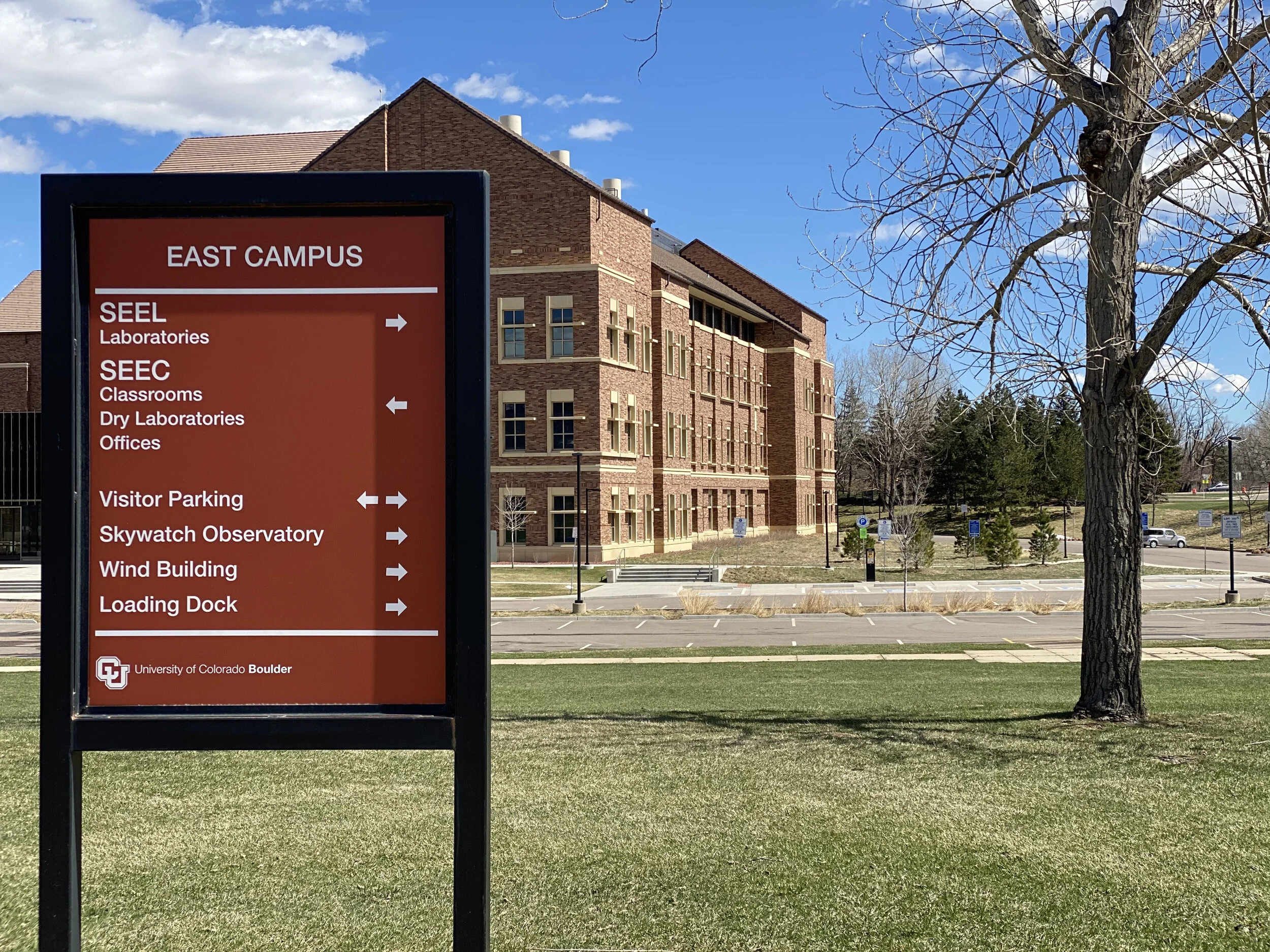Science is stunted as labs across the world shut down and summer field work is cancelled.
(Written for the Colorado Sun)
CU Boulder’s East campus, which houses important programs like the Institute for Arctic and Alpine Research, is nearly empty as labs were told to pause all non-essential operations amid the COVID-19 crisis. Photo by Jenna Sampson
In a world of federal whiplash and global pandemics, the science community always pulls through. But that’s not to say this year will shine a bright light on research.
As campuses around the world have shut down labs indefinitely until the COVID-19 crisis is subdued, researchers have been told to do what they can from home. This means the critical and exciting time of summer field work is being cancelled, leaving a gaping hole in many long term studies.
One of the many important collaborations being canceled due to the pandemic is the East Greenland Ice Core Project, EastGRIP, a site where more than 30 scientists from around the world have gathered for the past five summers to study a variety of data from the second largest ice sheet on the planet.
“It’s a real break in our otherwise annual rhythm,” said Bruce Vaughn who runs the Stable Isotope Lab in the Institute for Arctic and Alpine Research at CU Boulder. “I’ve been going to Greenland for over 30 years, and I’ve been at EastGRIP for the last five, so it’ll be weird to spend the summer here in Boulder.”
Vaughn’s isotope lab uses special machinery to measure the atomic weight of carbon molecules (the isotopic signature) in atmospheric gasses, which can identify their source. For instance, the signature of methane from a cow burp is slightly different from the signature of methane released at a fracking site. Because there are tiny air bubbles trapped deep in the Greenland ice sheet, the lab is able to help determine what the atmosphere was like as each layer of ice there was forming. Each summer at the site the team digs deeper into the ice to analyse those gasses, as of last year making it 40,000 years back in time.
CU Boulder slowly ratcheted up measures to protect students and faculty, finally suspending all non-essential research activities starting March 16th until further notice.
“This is an opportunity to do things you never had the time to do,” said Terri Fiez, Vice Chancellor of Research and Innovation at CU Boulder during a virtual town hall to the research community.
Vaughn was able to secure an exemption that allows his lab to remain in operation, with a skeleton crew and staggered shifts, thanks to their work analyzing greenhouse gasses.
“We have made the case that we are a mission critical operation. One reason is that with this amazing occurrence going on, we are likely to see a significant impact on a number of things going on in the atmosphere, including emission of fossil fuels,” he said.
In addition to the Greenland project, Vaughn’s isotope lab is a hub for processing atmospheric gasses that can explain trends in global warming. In an ongoing project with NOAA, which collects flasks of greenhouse gas samples from 55 sites around the globe, the final journey takes the flasks across town from NOAA’s South Boulder campus to the isotope lab on CU’s East Campus, which typically involves an official courrier. But the project is potentially at risk, with individuals now using their personal transportation to keep samples moving. With such a drastic decrease in fossil fuel emissions from restricted travel during this crisis, continuing the project will be vital in demonstrating that humans are on the hook for warming.
Many students, particularly those who are gearing up to defend a thesis after years of preparation, are walking a thin line trying to get exemptions to continue their final weeks of work. Some are just thankful the campus took action.
“To be honest, as much as this will make me extend my PhD I think the university has been great in taking the steps necessary to deal with the situation, as it seems like the government of this country will not. It makes me really proud to belong to this institution,” said Lina Perez, PHD candidate in Geology at CU Boulder. Perez had to defer her summer field work in China and in Columbia, where she had planned on paying her family a visit.
Many large grant-making institutions like the National Institute of Health and the National Science Foundation are being proactive, offering leniency and support for their grantees by extending deadlines and offering new guidance for grant managers to be flexible. Researchers with smaller or private funding are in murky water.
Scientists are experts at outwitting potential disasters and making it through this particular one is no different. In an endearing effort to stay sane, Vaughn joined a call with his Norwegian colleagues that ended with a book reading, one person reciting lines from a novel and the others trying to determine where on Earth the scene was taking place.
But while field work is being curtailed indefinitely for much of the scientific community, the world will keep spinning.
“Our data is collected by virtue of us being in the field. But the ice will wait for us, and the atmosphere will still be there next summer,” said Vaughn.
Nonetheless, a loss of momentum across all fields, from cancer research to seabird monitoring, could make this year a dim one for scientific discovery.
